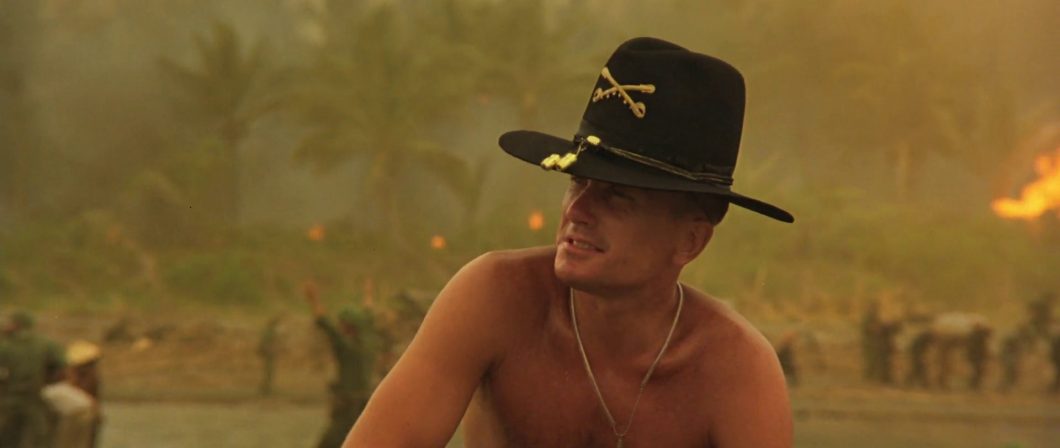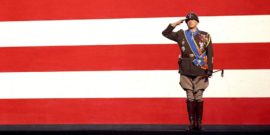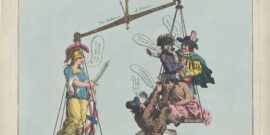What could the U.S. military have learned from the second-century-BC revolt in Judaea?
America's Heart of Darkness
Francis Ford Coppola published his last masterpiece 40 years ago, Apocalypse Now, the most sophisticated cinematic reflection on Vietnam and the problem that war posed for American freedom. Now, it’s again in theaters for this celebration and we have an opportunity to reflect on it, since we have again had serious political problems caused by what seem like unending “small” wars.
It is a remarkable testament to our Founders and to our national character that we have not turned our entire way of life over to war like the Romans did. American power is and has been unparalleled and yet we do not do the destructive things we easily might. But this does not mean that we do not love war at all or that it is not important to our politics.
In some ways, we still define ourselves as the innocent victims of aggression in World War II and therefore the champions of justice, freedom, and democracy. We not only won, we deserved to win, and we didn’t deserve to be involved in the worldwide catastrophe. That is a rare, perhaps unparalleled combination of morality and success. By contrast, Vietnam seems to be the war that put an end to that confidence in our strength and morality.
The war tore America apart. Not only did we not win, but our public authorities—poetic, political, moral—turned against the war. Many famous directors made movies about it, primarily to show the hell of war. They are not without merit, but they do not reach Coppola’s achievement, because they are not able to criticize the war from the Right rather than the Left, and even more importantly, are not able to show the real allure of war.
Maybe America should have won. This is what drives our protagonist, Captain Willard, played by Martin Sheen in his best performance. He is a narrator—a character who can reflect on his situation and his own soul. He can learn something that allows him to live with his experience. Apocalypse Now is the story of his desire for victory in Vietnam and therefore the attraction exerted on him by Col. Kurtz, played by Marlon Brando in his last great performance.
Willard is tasked with Kurtz’s assassination, but the more he learns about Kurtz and the more he sees about America’s war in Vietnam, the more he thinks the man might be right. He begins to be divided against himself. Willard gets his sense of dignity by serving his country. He’s only at home at war now; his wife divorced him and he barely noticed. He genuinely believes in America’s cause, when by contrast, the military and political authorities refuse to admit defeat while also denying it can be won.
The film presents Kurtz as the model American officer, a martial aristocrat that succeeded in every institution of military education and volunteered for every dangerous and therefore noble assignment. He is the best of us fighting for the rest of us, but he went insane because his superiors wanted war without victory. Kurtz viewed victory as preferable to obedience and started committing war crimes. He has become the savagery he saw. America made him an enemy to the North Vietnamese Communists, and he in turn became an enemy to all mankind.
To reach Kurtz, Willard endures many great hardships. Ultimately, he confronts the danger that victory means the same thing as brutality. Along the way, Willard meets another superb American soldier, Col. Kilgore, played by Robert Duvall as a combination of Romantic Southern warrior, again recalling aristocracy, and California surfer, recalling a natural pleasure in strife. This man is willing to brave any danger and at the same time turns war into an exercise in American nostalgia—an experience for his men complete with bonfires, guitars, steaks, and surfing. He differs from Kurtz in that he’s found another crazy idea, war as a playground. He, too, has no hope that American authorities have any idea what they’re doing, and fears the war’s end.
The spectacular operational success of Kilgore combined with his obvious love for his men is enough to persuade Willard that war demands far more shocking measures than Kilgore’s. Willard views Kilgore’s war as unserious, because its objectives are frivolities like securing beaches for surfing, not a victory that will return America to peace. They seem fully American only at war, since only there is America defined against an enemy, the Communism of the North Vietnamese. Everywhere else, Americans necessarily disagree and then quarrel politically and in extreme cases even treat each other as enemies.
More, America is civilized, unlike the savage enemy who will do anything, including turning women and children into human sacrifices. Willard witnesses suicide attacks and hears about horrors that show the Communists would rather die fighting than live with defeat. Americans do not know how to fight such an enemy, and the nation went to war in Vietnam without any awareness that the struggle could become total, denying any common humanity.
If American leaders ask their soldiers to fight a just war without the hope of victory, they may conclude that justice is weak or that there is no justice, only deceptions. This is a terrifying position to put soldiers in. Kurtz’s madness is therefore a consequence of his full patriotism. He has no reservations about America and sees that America is now facing total war, not some kind of minor negotiation of positions, territories, advantages, or interests; therefore, he will do anything to win.
But this leads Kurtz to admire the most savage enemies he encounters, since they, too, will do anything to win. He learns to prefer horror to morality, but this separates him from his American family, from the son he can never again hold and who can never learn from him how to be a man and a patriot. Suicide is the only path left open to Kurtz, since he can no longer have the clarity of either victory or defeat.
Willard shares neither the intense personal morality of Kurtz nor the lifelong habits of war—this seems to be why the more democratic man is able to survive this catastrophe when the more aristocratic man is not. Kurtz really is a hero, and America really does produce Pattonesque men who seem supernaturally able to wage war, on whom the rest of us in certain ways depend. But for that reason, such men bear a moral burden the rest of us do not. They have to define themselves as enemies of our enemies without actually being allowed to prefer enmity and martial violence to peace. Americans often love their warriors, but don’t want to believe they could love war itself.
The difficulty of this task is hard to exaggerate. We go to war because of the belief in justice that we live by in peace—but war then demands that we change, that we learn new beliefs, or else we cannot have victory. The more Kurtz sees how savage his enemies are, the more savage he wishes to become as well. He begins to admire, strangely, their commitment, since it is fearless and dedicated, just as he is. Neither will accept defeat. So he sees his chance encounter with the North Vietnamese as a personal destiny—it is his burden to prove that American morality wins eventually.
Apocalypse Now presents us with shocking alternatives. In Coppola’s telling, the American way of war tends toward either incompetence or brutality. We can administer either a bureaucratic war, politically acceptable but strategically doomed, or wage a savage war, guaranteed to win but politically unacceptable. We have faced these alternatives again and again, and generally fail to wage our wars prudently. The question of how to match sanity and victory can be restated as how to be civilized without treating the uncivilized as though they were merely beasts.
Coppola shows us that the Communist North Vietnamese really were a savage enemy. No amount of liberal idealism can dispel that. It is also true that no amount of conservative patriotism can dispel the inner dangers of war—of moving from justice to brutality. As a country, we have survived with our wits because we are rather like Willard, willing to take defeat, willing to make moral claims that aren’t absolute, and willing to admit that chance and the limits of human nature are real. Willard in a way does honor to Kurtz, once he’s dead. He was one of us, and noble, and Willard’s claim seems to be that we ought to learn from his descent into madness.
The unusual criticism of Apocalypse Now is that America wasn’t ready for war. For all the power and all the moral confidence, the tragedy of war, where justice and brutality can become indistinguishable, was not something our elites could contemplate. So Coppola instead appealed to the people—if we can see ourselves, maybe we can accept the limits of patriotism as well as of moral idealism.
In looking to the American people, there may be a way to achieve victory in the future. Coppola and his writer, John Milius, tell us to learn at least from our suffering: They want to honor the soldiers and their cause, and in so doing also understand the dark paths our own hearts might take.
Editor’s Note: Readers interested in a longer discussion of the movie can listen to the author’s podcast on the film.



